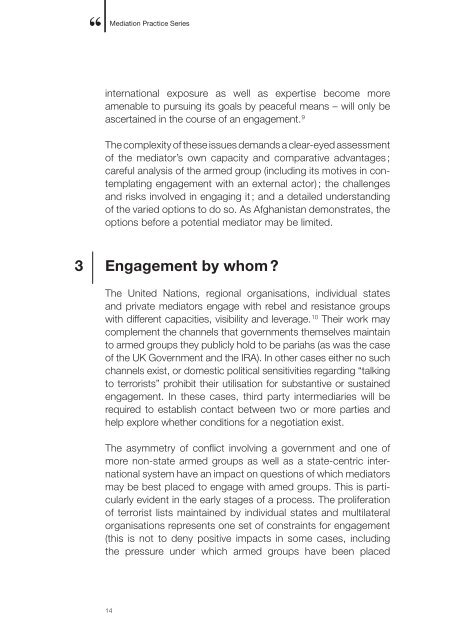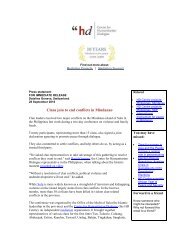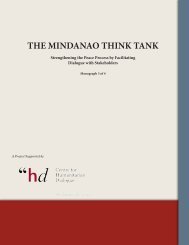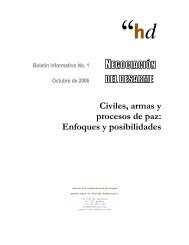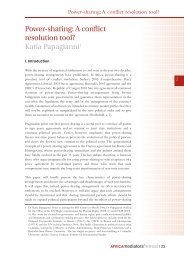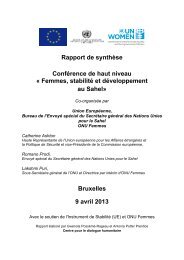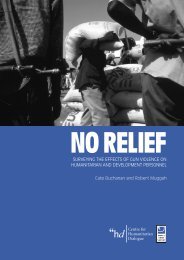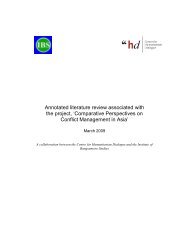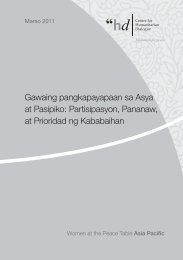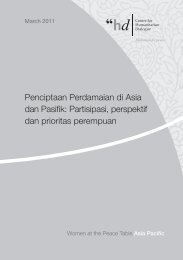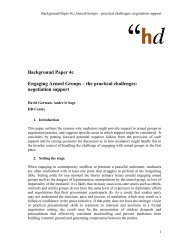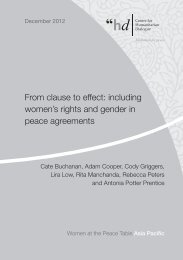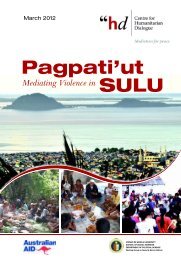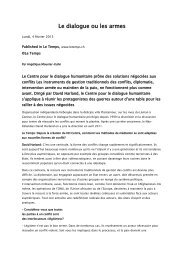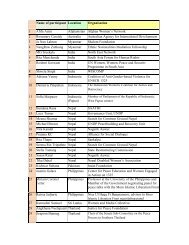Engaging with armed groups - Centre for Humanitarian Dialogue
Engaging with armed groups - Centre for Humanitarian Dialogue
Engaging with armed groups - Centre for Humanitarian Dialogue
- No tags were found...
Create successful ePaper yourself
Turn your PDF publications into a flip-book with our unique Google optimized e-Paper software.
Mediation Practice Seriesinternational exposure as well as expertise become moreamenable to pursuing its goals by peaceful means – will only beascertained in the course of an engagement. 9The complexity of these issues demands a clear-eyed assessmentof the mediator’s own capacity and comparative advantages ;careful analysis of the <strong>armed</strong> group (including its motives in contemplatingengagement <strong>with</strong> an external actor) ; the challengesand risks involved in engaging it ; and a detailed understandingof the varied options to do so. As Afghanistan demonstrates, theoptions be<strong>for</strong>e a potential mediator may be limited.3Engagement by whom ?The United Nations, regional organisations, individual statesand private mediators engage <strong>with</strong> rebel and resistance <strong>groups</strong><strong>with</strong> different capacities, visibility and leverage. 10 Their work maycomplement the channels that governments themselves maintainto <strong>armed</strong> <strong>groups</strong> they publicly hold to be pariahs (as was the caseof the UK Government and the IRA). In other cases either no suchchannels exist, or domestic political sensitivities regarding “talkingto terrorists” prohibit their utilisation <strong>for</strong> substantive or sustainedengagement. In these cases, third party intermediaries will berequired to establish contact between two or more parties andhelp explore whether conditions <strong>for</strong> a negotiation exist.The asymmetry of conflict involving a government and one ofmore non-state <strong>armed</strong> <strong>groups</strong> as well as a state-centric internationalsystem have an impact on questions of which mediatorsmay be best placed to engage <strong>with</strong> amed <strong>groups</strong>. This is particularlyevident in the early stages of a process. The proliferationof terrorist lists maintained by individual states and multilateralorganisations represents one set of constraints <strong>for</strong> engagement(this is not to deny positive impacts in some cases, includingthe pressure under which <strong>armed</strong> <strong>groups</strong> have been placed14


